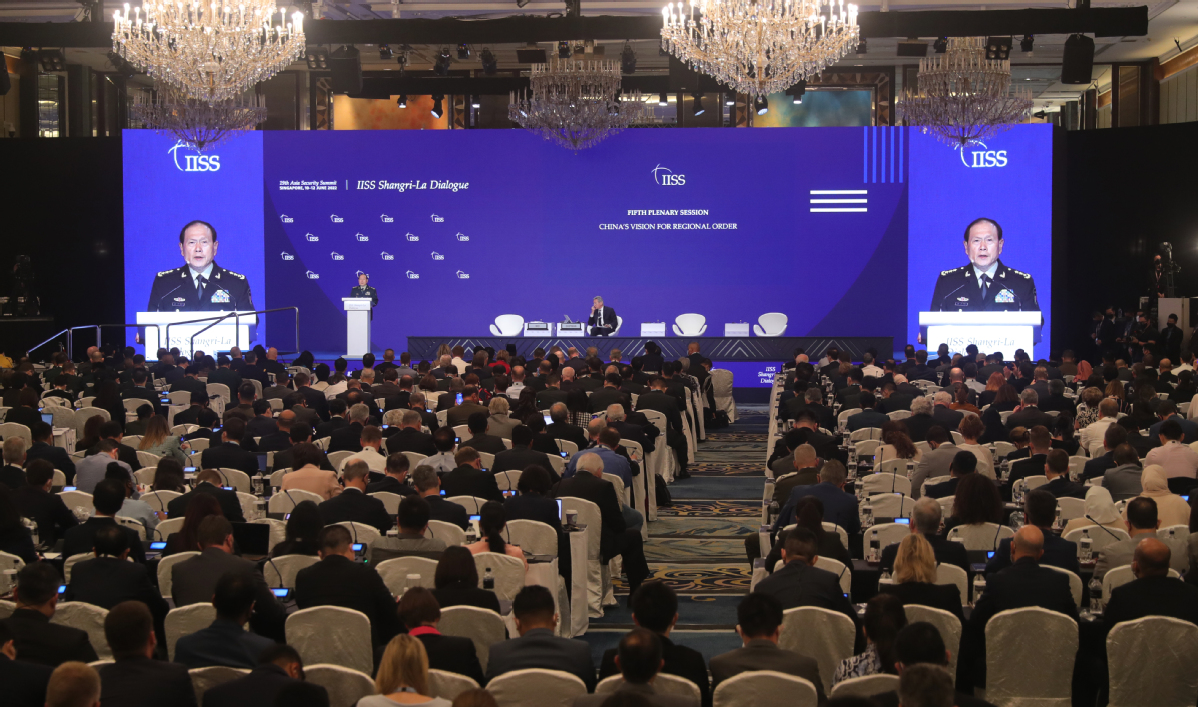Dividing countries not way towards stable Asia-Pacific


The Shangri-La Dialogue, which wrapped up here on Sunday, should have been an ideal platform to foster cooperation for Asia-Pacific peace and prosperity. Regretfully, the United States and its allies have utilized it to stoke confrontation and coerce regional countries into containing China.
By peddling the slogan of "Free and Open Indo-Pacific" to hide the true purpose of maintaining U.S. global hegemony, Western countries have exposed an inability to live up to regional expectations for cooperation.
The region should stay vigilant of Washington's hypocritical geopolitical strategies. Above all, pitting countries against one another cannot create a better future for Asia-Pacific.
The emphasis U.S. Secretary of Defense Lloyd Austin put on such coteries as AUKUS and Quad in his speech proves that Washington has paid no more than lip service with the promise that it would not seek division or strife in the region.
Austin asked regional countries to "strengthen the rules-based international order." Yet it is Austin's own country that has frequently disregarded international law, arbitrarily withdrawn from multilateral mechanisms and treaties, imposed unilateral sanctions against countries it dislikes, and interfered in the internal affairs of sovereign nations.
It seems laughable that the United States claims to champion a rules-based global order.
Meanwhile, observers in the Association of Southeast Asian Nations are concerned that AUKUS and Quad would impede regional centrality, and the so-called Indo-Pacific Economic Framework (IPEF) would disrupt existing economic arrangements such as APEC.
During a recent regional forum, former Malaysian Prime Minister Mahathir Mohamad cautioned that the IPEF is intended to isolate China and won't benefit regional economic growth.
In fact, a constructive mechanism should contribute to world and regional peace, stability and shared interests of all, rather than stoke antagonism out of certain countries' self-serving motives. As the Chinese delegation at the Shangri-La Dialogue has said, Washington's Indo-Pacific strategy would only cause division, instigate confrontation and undermine peace in Asia-Pacific.
With the resurgence of unilateralism and a Cold War mentality, Asia-Pacific risks backsliding into division and confrontation.
The way forward is to uphold and practice multilateralism and build a community with a shared future for mankind, Chinese State Councilor and Defense Minister Wei Fenghe pointed out in his speech during the dialogue.
China has taken concrete action to safeguard peace in the region and beyond by proposing the Global Security Initiative, offering the international community Chinese solutions and wisdom to address common challenges.
Kin Phea, director-general of the International Relations Institute at the Royal Academy of Cambodia, said China consistently upholds a vision of common, comprehensive, cooperative and sustainable security, thereby "playing a more important role in safeguarding global and regional peace and stability."
The Asia-Pacific region is the world's most vibrant and promising economic powerhouse. Countries should jointly uphold regional peace and stability to strive for an Asia-Pacific community with a shared future.


































